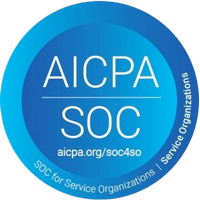The weather’s cooling, the leaves are changing color, and, unfortunately, flu season is in full swing. From October until spring, flu numbers rise, putting patients and staff at risk.
Thankfully, the flu vaccine can help stop the spread of this highly contagious virus. It’s important (and in some cases, mandatory) to vaccinate your staff against influenza. But in the era of vaccine misinformation, this may be challenging.
We separate the facts from the myths and review the most effective flu shot incentives for healthcare workers.
Can Healthcare Workers Refuse the Flu Vaccine?
Unfortunately, there’s no easy answer to this question—it all depends on the state in which your facility is located.
For example, Colorado doesn’t allow healthcare workers to remain unvaccinated, unless they have a documented medical exemption. On the other hand, Virginia doesn’t require healthcare employees to receive the flu shot or disclose their vaccination status. If you have facilities in multiple states, you’ll likely have to juggle differing sets of requirements.
Regardless of whether you live in a state that requires vaccines, it’s still best practice to urge your employees to receive one. Here’s why.
Risks of Healthcare Employees Not Getting Vaccinated
Increased Risk of Contracting the Flu
It’s proven: the flu vaccine reduces risk of contracting the flu. In fact, the risk of needing medical attention for influenza is decreased by 40%-60% for those who are vaccinated. If a vaccinated person does contract the flu, they’re more likely to experience less severe illness.
Patient Safety
There’s no understating the toll that flu takes on American populations. According to the CDC, the flu resulted in approximately 52,000 deaths yearly between 2010 and 2022, just in the United States.
Since people above the age of 65 are especially at risk from the flu, residents in long-term care facilities are often severely affected during flu season.
Staff Safety
Unvaccinated staff face increased risk in healthcare facilities, as they’re around patients at high risk of the flu. It’s important for both staff and patient safety to receive the flu vaccine and decrease their chances of contracting and spreading the virus.
Flu Vaccine Myths
Myth: The Vaccine Is Not Effective
The vaccine isn’t a fail safe against the flu, but it’s still effective. According to a 2021 study, patients vaccinated against the flu were 26% less likely to be hospitalized in the ICU, and 31% less likely to die from the flu. The flu vaccine saves lives.
Myth: It Causes Serious Side Effects
Mild side effects are natural with the flu vaccine. These side effects, such as swelling, irritation, and fever, occur due to the body’s immune response to the vaccine. Many people don’t experience side effects, and those who do typically report that their symptoms vanish within a few days. Severe reactions are possible, but very rare. On occasion, some people faint from getting shots. Talk to your doctor if you’ve had a past reaction.
Myth: Pregnant Women Shouldn’t Get the Flu Shot
The CDC recommends that pregnant women receive the vaccine at any time during their pregnancy. It’s important that pregnant women receive a flu shot, not the live attenuated vaccine (typically given in a nasal spray). Both forms of the vaccine are safe for those who recently gave birth or are breastfeeding.
Myth: The Flu Vaccine Gives You the Flu
While this is a common misconception, there’s no way for the flu vaccine to give a patient the flu. The flu vaccine does not introduce a live virus to your system, so it’s impossible.
Myth: One Flu Vaccine Is Enough for Life
Like many viruses, the flu virus is always adapting and changing. Each flu season, we experience a different version of the flu from the season before. Your immunity from the vaccine will also wane over time. It’s important to receive the flu vaccine each in order to be best protected.
5 Flu Shot Incentives for Healthcare Workers
While the flu vaccine is safe, reliable, and effective, some healthcare workers may still feel hesitant to receive it.
Overall, vaccine hesitancy is on the rise. But with a strategic campaign, employers can educate and inform staff about the benefits of vaccination.
Flu shot incentives for healthcare workers can be a great way to get your staff motivated to get vaccinated. Even if you live in a state that has mandatory vaccinations for employees, some of these flu shot incentives can help you increase enthusiasm among your staff.
Here’s how to incentivize healthcare workers to get the vaccine.
-
Educate Employees
The science is clear: getting the flu vaccine is a good idea. But some people struggle to find accurate information in a sea of misinformation. Set the record straight with these steps.
Run a Flu Vaccination Campaign
A vaccination campaign is a strategic initiative to raise awareness of and promote a vaccine. Here are some tactics you can use in your campaign:
- Conduct meetings, town halls, or virtual sessions to discuss vaccines, any concerns staff may have.
- Remind staff of flu shot requirements or incentive programs in other meetings.
- Consider inviting a medical professional—one of your own doctors, for example—to conduct a Q&A.
- Post flyers in prominent places, such as entrances and break rooms, as a low-effort way to remind staff to get vaccinated.
Offer Vaccinations at Work
Sometimes, employees aren’t hesitant about the vaccine—they’re just busy. Consider offering vaccinations at work, and allowing employees to get vaccinated while they’re on shift—after all, vaccinations don’t take much time. In a healthcare setting, it’s likely you have the resources you need to set up on-site vaccination. But if you’re struggling with the logistics, the CNC has a handy guide.
Send Out Newsletters and Reminders
Use multiple channels to remind staff to get vaccinated, from newsletters to social media. This way, staff will see information about the flu shot and flu shot incentives regardless of where they spend their digital time.
Learn about creating a workplace vaccination plan
2. Reward Flu Shots With Time Off
If you’re having trouble getting your vaccination rates where you want them to be, try offering a day off as a flu shot incentive.
A day off could also give employees time to recover if they experience any minor side effects. Just make sure that you budget this PTO into your overall staffing schedules—it may be wise to set caps on how many employees can take a day off at a time.
3. Offer Gift Cards or Cash Bonuses
Gift cards and cash bonuses are both excellent ways to motivate your staff. To make this strategy more cost effective, give every vaccinated employee a raffle ticket for a single prize. Be sure to offer something employees actually want to create buzz.
5. Make Vaccinations a Part of Your Wellness Program
Framing the influenza vaccine as a part of a wellness initiative can show employees that it’s not just something work wants them to do—it’s also a way to take care of themselves. If you have wellness events or communication—such as initiatives for world mental health day, include information about the vaccine. Reframing the vaccine as wellness can help hesitant people see the flu shot from a new angle.
Learn more about supporting nurse wellness
Keep Track of Vaccination Records With Apploi
Tracking your staff’s vaccination records can be challenging, complicated, and time-consuming. With Apploi, you can manage and verify vaccination records easily, saving time during flu season.
Interested in learning more about how you can recruit, hire, and onboard healthcare staff quickly, all while managing vaccination records? Contact us today for a free demo of our end-to-end talent management solution.





